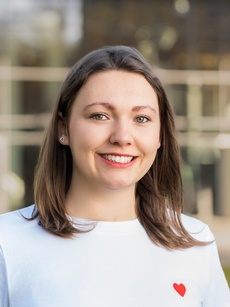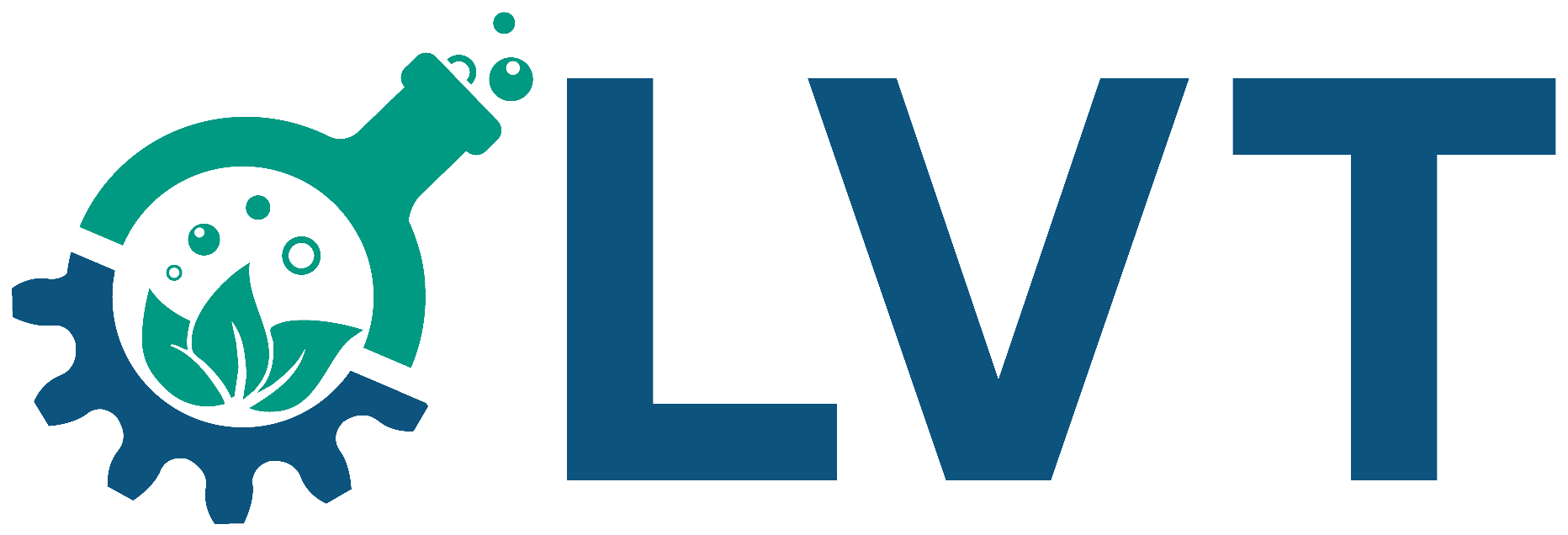
M.Sc. Désirée Martin
- group:
Emulgiertechnik
- room: 406
- phone: +49 721 608 46397
- fax: +49 721 608 45967
- desiree martin ∂does-not-exist.kit edu
Postanschrift: Kaiserstr. 12
Liefer- und Besucheranschrift: Gotthard-Franz-Straße 3
Geb. 50.31, 4. OG
D-76131 Karlsruhe
About myself
After graduating from highschool in Thuringia, I immediately began to study Life Science Engineering at KIT in Karlsruhe. My interest in food process engineering had already been spiked during my bachelor's degree. Accordingly, I completed my bachelor's thesis at Food Process Engineering (LVT) in the field of double emulsions. During my Master studies, I had the chance to gain further experience in the field of emulsification technology as a student assistant. I did my six-month industrial internship at Beiersdorf AG in Hamburg. Here, I investigated the use of solid lipid nanoparticles (SLNs) in the cosmetics industry. My master's thesis focussed on melt emulsions: I investigated the influence of the molecular structure of the emulsifier and the process control on the crystallisation behaviour of emulsified triglycerides.
Since October 2021, I have been working on my doctorate as a research assistant in the emulsification technology group.
Research focus
Structuring and texture modification of vegan yoghurt alternatives
Biopolymers, such as pectins, are used in food products to create textures and gels (e.g. in jams and marmalades). However, the gelling properties of pectins can also be used to synthesise microgel particles. Microgel particles are colloids, each consisting of a gelled polymer network. As such, microgel particles combine the properties of particles, gel networks, and the polymer chains used for microgel formation. For this reason, microgel particles are of great interest to the food industry. They can be used as texturisers and emulsifiers in various applications. The main focus of my research is the usage of pectin-based microgel particeles for structuring and texture modification of vegan yoghurt alternatives.
Molecular structure – function relationships of gum arabic
The focus here is on the influence of the molecular composition of gum arabic on the stabilisation of flavour and beverage emulsions. The aim is to investigate the causes for the different emulsification behaviour of various gum Arabic samples. The relationship between the structure and the emulsifying and emulsion-stabilising properties is being investigated.
Methods
Structuring and texture modification of vegan yoghurt alternatives
Microgel formation is composed of a mixing step and of a droplet/gel breakup step which correspond to the processes occurring during the emulsification of fluids. For this reason, the machines used for emulsification (high-pressure homogenization, rotor-stator system, etc.) can also be employed for microgel formation. Optical and rheological methods are used for the characterization of microgel particles, these include light microscopy, (interfacial) rheology and particle size measurement techniques.
Molecular structure – function relationships of gum arabic
The interfacial and emulsifying properties can be investigated, among other things, by measuring the interfacial tension, the interfacial rheology and the drop size distribution of emulsions.
| title | time | type | tutor |
|---|---|---|---|
| Herstellung und Charakterisierung von veganen Joghurtalternativen | nach Vereinbarung | Masterarbeit |
Publications
Martin, D.; Müller, E.; van der Schaaf, U. S.
2025. Food Hydrocolloids, 169, 111595. doi:10.1016/j.foodhyd.2025.111595
Kersten, F.; Martin, D.; van der Schaaf, U. S.; Wefers, D.
2025. Food Hydrocolloids, 165, 111231. doi:10.1016/j.foodhyd.2025.111231
Reiner, J.; Martin, D.; Ott, F.; Harnisch, L.; Gaukel, V.; Karbstein, H. P.
2023. Colloids and Interfaces, 7 (1), 22. doi:10.3390/colloids7010022
Presentations
Kersten, F.; Martin, D.; van der Schaaf, U.; Wefers, D.
2025, September. 53rd Deutsche Lebensmittelchemietage (2025), Halle (Saale), Germany, September 22–24, 2025
Kersten, F.; Martin, D.; van der Schaaf, U.; Wefers, D.
2025, June. 22nd Gums and Stabilisers for the Food Industry Conference (2025), Wageningen, Netherlands, June 3–6, 2025
Martin, D.; Kersten, F.; Wefers, D.; van der Schaaf, U.
2025, March. Jahrestreffen der DECHEMA/VDI-Fachgruppen Gasreinigung, Mechanische Flüssigkeitsabtrennung, Grenzflächenbestimmte Systeme und Prozesse (2025), Frankfurt am Main, Germany, March 6–7, 2025
Martin, D.; van der Schaaf, U.
2025. 99th ACS Colloids & Surface Science Symp & 18th IACIS Conference (2025), Edmonton, Canada, June 22–26, 2025
Martin, D.; Kerstens, F.; Karbstein, H.; van der Schaaf, U.
2024, September. 22nd IUFoST World Congress of Food Science and Technology (2024), Rimini, Italy, September 8–12, 2024
Martin, D.; Karbstein, H.; van der Schaaf, U.
2024, April. 19th Food Colloids Conference (2024), Thessaloniki, Greece, April 14–18, 2024
Martin, D.; Müller, E.; Karbstein, H.; Schaaf, U. van der
2024, February. Jahrestreffen der DECHEMA/VDI-Fachgruppe Lebensmittelverfahrenstechnik (2024), Quakenbrück, Germany, February 27–28, 2024
Posters
Martin, D.; Kersten, F.; Wefers, D.; van der Schaaf, U.
2025, February. Jahrestreffen der DECHEMA/VDI-Fachgruppe: Lebensmittelverfahrenstechnik (2025), Freising, Germany, February 25–26, 2025
Martin, D.; Schey, K.; Müller, E.; van der Schaaf, U.
2025. 39th EFFoST International Conference (2025), Porto, Portugal, November 17–19, 2025
Martin, D.; Müller, E.; Leister, N.; van der Schaaf, U.
2024, October. GDL-Kongress Lebensmitteltechnologie (2024), Lemgo, Germany, October 10–12, 2024
Kersten, F.; Martin, D.; van der Schaaf, U.; Wefers, D.
2024, September. 52nd Deutsche Lebensmittelchemietage (2024), Freising, Germany, September 16–18, 2024
Martin, D.; Karbstein, H.; Schaaf, U. van der
2023, November. 37th EFFoST International Conference (2023), Valencia, Spain, November 6–8, 2023
Martin, D.; Karbstein, H.; van der Schaaf, U. S.
2023, September. 37th European Colloid & Interface Society Conference (ECIS 2023), Naples, Italy, September 3–8, 2023
Martin, D.; Karbstein, H.; van der Schaaf, U. S.
2023. Jahrestreffen der DECHEMA-Fachgruppen Hochdruckverfahrenstechnik (2023), Bochum, Germany, March 13–15, 2023
Saavedra Isusi, G. I.; Weilandt, M.; Majollari, I.; Martin, D.; Karbstein, H. P.; Schaaf, U. S. van der
2022, June 27. 18th European Student Colloid Conference (ESC 2022), Szeged, Hungary, June 26–30, 2022
Martin, D.; Saavedra Isusi, G. I.; Weilandt, M.; Majollari, I.; Karbstein, H. P.; Schaaf, U. S. van der
2022, March 10. Jahrestreffen der ProcessNet-Fachgruppen Lebensmittelverfahrenstechnik und Trocknungstechnik (2022), Frankfurt am Main, Germany, March 10–11, 2022
Reiner, J.; Martin, D.; Karbstein, H. P.
2022, March 10. Jahrestreffen der ProcessNet-Fachgruppen Lebensmittelverfahrenstechnik und Trocknungstechnik (2022), Frankfurt am Main, Germany, March 10–11, 2022
Saavedra Isusi, G. I.; Weilandt, M.; Majollari, I.; Martin, D.; Karbstein, H. P.; Schaaf, U. S. van der
2022. 36th Conference of the European Colloid and Interface (ECIS 2022), Chania, Greece, September 4–9, 2022

